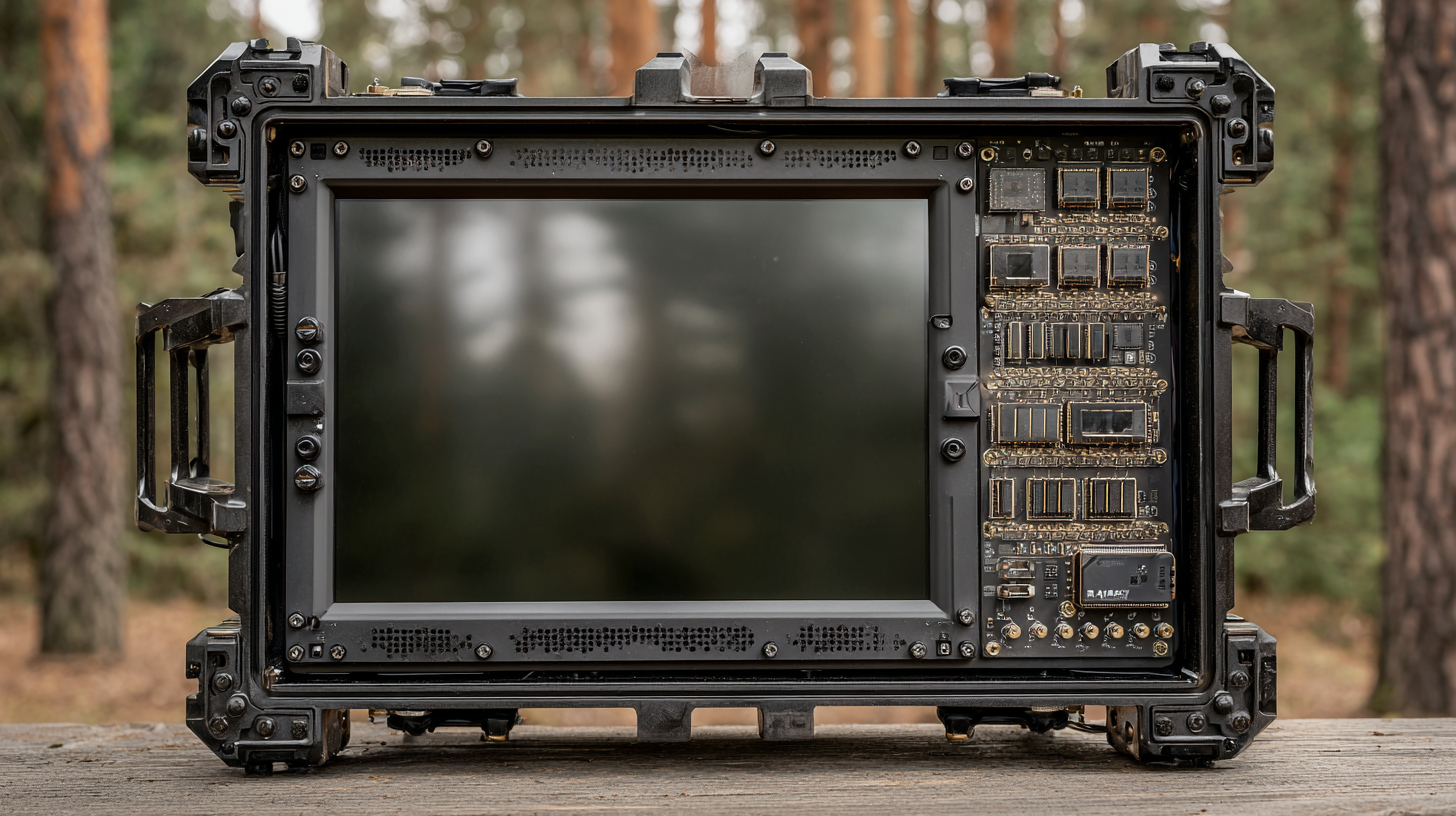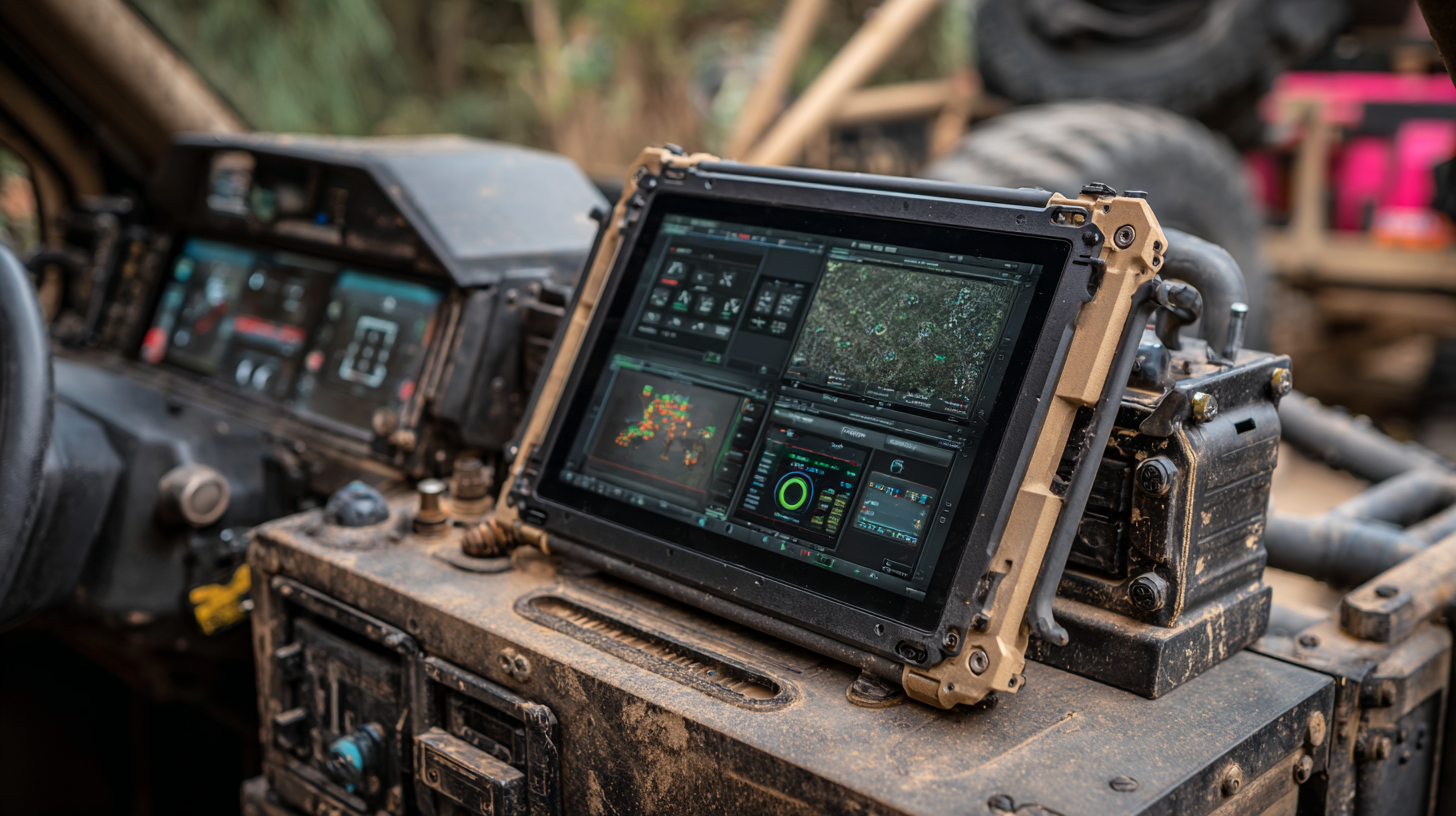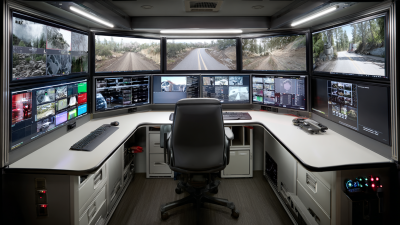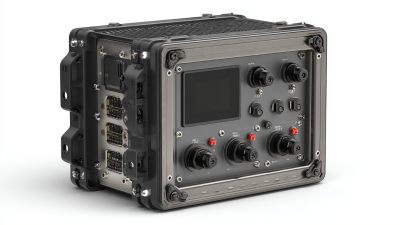Exploring the Durability and Performance of Rugged Panel Computers in Harsh Environments
In an era where technology is becoming increasingly integral to various industries, the need for reliable and resilient computing solutions is paramount, especially in harsh environments. Rugged panel computers have emerged as a critical component, designed to withstand extreme temperatures, vibrations, moisture, and dust. This exploration delves into the durability and performance characteristics of rugged panel computers, focusing on their construction, materials, and design innovations that enable them to operate under challenging conditions.

By analyzing real-world applications and user experiences, this discussion will illuminate how these robust systems not only enhance operational efficiency but also reduce downtime and maintenance costs, making them indispensable tools in sectors such as manufacturing, construction, and military operations. Ultimately, the ongoing evolution of rugged panel computers represents a significant advancement in the quest for reliable technology in demanding environments.
Understanding Rugged Panel Computers: Key Features for Harsh Environments
Rugged panel computers are specifically designed to thrive in harsh environments, making them essential for industries such as manufacturing, transportation, and military applications. These devices often feature robust housings that adhere to military standards, including MIL-STD-810G for environmental durability and IP65 ratings for dust and water resistance. According to a report by VDC Research, the rugged computing market is projected to reach $6.5 billion by 2025, highlighting a growing demand for reliable computing solutions in extreme conditions.
Key features of rugged panel computers include high-performance processors, which ensure smooth operation in demanding tasks, and displays that remain visible under bright sunlight and are resistant to scratches and impacts. The adoption of advanced materials, such as magnesium alloy and shock-absorbing mounts, enhances their durability. Furthermore, studies indicate that these computers can operate in a temperature range from -20°C to 60°C, accommodating varied industrial environments. This capability to function reliably amidst severe conditions underscores the importance of rugged panel computers in maintaining operational efficiency and safety in critical sectors.
Durability and Performance of Rugged Panel Computers in Harsh Environments
This chart illustrates the durability and performance metrics of rugged panel computers in harsh environments, highlighting their temperature resistance, humidity tolerance, vibration resistance, and water resistance capabilities.
Material Science Behind Rugged Design: What Makes Them Durable
The durability of rugged panel computers hinges on advanced material science, which plays a pivotal role in their ability to withstand harsh environments. Recent innovations highlight the significance of structural design and material composition in enhancing durability. For instance, the development of robust and durable collagen-based fibers through a dual cross-linking strategy exemplifies how careful engineering can lead to materials that are both strong and eco-friendly. Such advancements contribute to the reliability of rugged devices, allowing them to perform efficiently under extreme conditions.
Additionally, breakthroughs in lightweight materials, like those designed by artificial intelligence, demonstrate that it is possible to achieve exceptional strength without a significant increase in weight. These new materials, which possess the strength of steel yet are as light as foam, can revolutionize the construction of rugged electronics, ensuring they are both manageable and highly durable. The integration of innovative structural designs, such as superhydrophobic surfaces inspired by natural fractal patterns, further enhances the resilience of these devices against environmental stresses, ensuring their functionality and longevity in demanding applications.

Performance Metrics: How Rugged Panel Computers Stand Up to Extreme Conditions
Rugged panel computers are engineered for resilience, but their performance metrics in extreme conditions are crucial for industries dependent on reliability. According to a recent report by VDC Research, rugged computing devices can endure temperature fluctuations from -40°C to 70°C, humidity levels exceeding 95%, and significant vibration and shock, setting them apart from standard models. This durability ensures continuous operation in field applications such as military, construction, and manufacturing, where failures can lead to severe operational disruptions.
When evaluating rugged panel computers, it is essential to consider key performance metrics. The IP (Ingress Protection) rating, for example, indicates resistance against dust and liquids; devices with an IP67 rating can handle submersion in water, making them ideal for wet environments. Moreover, MIL-STD-810 certification provides assurance that a device meets military standards for durability against environmental stressors.
**Tips**: When selecting a rugged panel computer, always check for their certification ratings, as they offer insight into how well the device will perform in specific harsh conditions. Additionally, consider the total cost of ownership; investing in a high-quality rugged computer can result in fewer maintenance costs and reduced downtime in the long run. Regular performance assessments can also help in identifying any early signs of wear and tear, ensuring systems remain operational when they are needed most.
Maintenance Tips: Ensuring Longevity and Reliability in Challenging Settings
When operating rugged panel computers in harsh environments, proper maintenance becomes essential for ensuring their longevity and reliability. These specialized devices are designed to withstand extreme temperatures, humidity, vibration, and dust, but routine attention and care are crucial. Regular inspection for any signs of wear, such as cracks in the casing or degradation of seals, can help prevent more significant issues down the line. Additionally, keeping the device clean and free from contaminants, such as dirt and moisture, is vital in maintaining its performance.
Furthermore, implementing a robust maintenance schedule is key to maximizing the lifespan of rugged panel computers. This includes updating software to protect against vulnerabilities, periodically checking connections and ports for corrosion, and ensuring that cooling mechanisms are functioning properly. Utilizing protective accessories, such as screen covers and environmental enclosures, can further shield devices from physical damage. By adopting these maintenance practices, users can significantly enhance the reliability and durability of their rugged panel computers in challenging settings, ensuring they remain effective tools in the often-unforgiving environments they are designed to endure.

Case Studies: Real-World Applications of Rugged Panel Computers in Industry
Rugged panel computers have become integral in various industries, particularly in environments that challenge standard technology. Case studies abound of mining operations utilizing these devices, where exposure to dust, moisture, and extreme temperatures is a constant concern. In one instance, a mining company implemented rugged panel PCs to streamline their equipment monitoring. This innovation not only improved operational efficiency but also significantly reduced downtime caused by equipment failures, showcasing the resilience of rugged technology.
Another compelling example can be seen in the maritime industry. Ships, often subjected to harsh oceanic conditions, rely on rugged panel computers for navigation and cargo management. A shipping company adopted these devices on board, leading to more reliable data tracking and quicker decision-making during critical operations, thereby enhancing safety and efficiency at sea.
**Tip:** When selecting rugged panel computers for your industry, ensure they meet the specific environmental standards required, such as IP ratings for dust and water resistance, to maximize their performance and longevity.
**Tip:** Consider the power consumption and heat dissipation capabilities of these computers, as harsh environments often present challenges like overheating, potentially affecting your operational reliability.
Related Posts
-

The Comprehensive Ultimate Guide to Choosing the Right Rugged Panel Computer for Your Needs
-

Mastering the Industrial Panel PC Revolution for Optimal Manufacturing Efficiency
-

Ultimate Guide to Choosing the Right Rugged Panel PC for Your Business Needs
-

How to Choose the Best Rugged Panel Computer for Your Business Needs
-

How to Choose the Right Military Panel PC for Your Operational Needs
-

Essential Techniques for Maximizing Industrial Panel Performance in Your Operations

